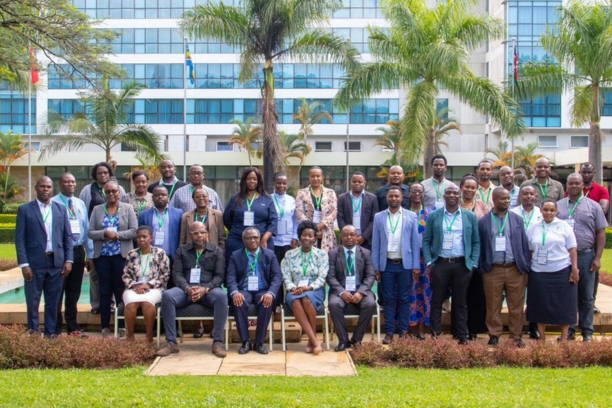Empowering Sustainability: Workshop Unveils Curriculum for Community Natural Resource Management and Waste Solutions

In a significant stride towards fostering sustainability, the Workshop on Developing Curriculum (DACUM) for Sustainable Community-Based Natural Resources and Waste Management was ceremoniously inaugurated by Professor Jafari Kideghesho, the Rector of the College of African Wildlife Management,Mweka on February 13th, 2024.
In his address, Professor Kideghesho underscored the paramount importance of fostering collaboration, sharing experiences, and collectively shaping the trajectory of community-based natural resource management and waste solutions. He emphasized the urgent need for concerted efforts to build a greener future, urging participants to unite their endeavors towards this noble cause.
The workshop served as a convergence point for a diverse array of experts, practitioners, and stakeholders hailing from various sectors. Their gathering aimed to facilitate the exchange of knowledge, best practices, and innovative ideas essential for sustainable resource management.
Through collaborative efforts and mutual learning, participants envisaged the creation of more effective strategies and solutions to tackle the challenges of sustainable resource management head-on. Central to this endeavor is the DACUM process, which furnishes a structured framework for identifying key competencies and skills requisite in this domain.
Importantly, the curriculum crafted through the DACUM process is poised to be dynamic and responsive to the evolving needs of the field, ensuring its relevance and efficacy in addressing contemporary environmental challenges.
With a shared commitment to action and a collective resolve to safeguard our environment, participants affirmed their dedication to making a tangible difference in promoting sustainability. By nurturing a culture of collaboration and knowledge-sharing, they aspire to pave the way for a more sustainable future, one that transcends generations.
In the spirit of unity and shared responsibility, the workshop concluded with a resounding call to action: Let us harness our collective potential and embark on this journey towards a more sustainable world—one where communities thrive in harmony with nature and where waste is transformed into opportunities for growth and regeneration. Together, we can make it happen.

